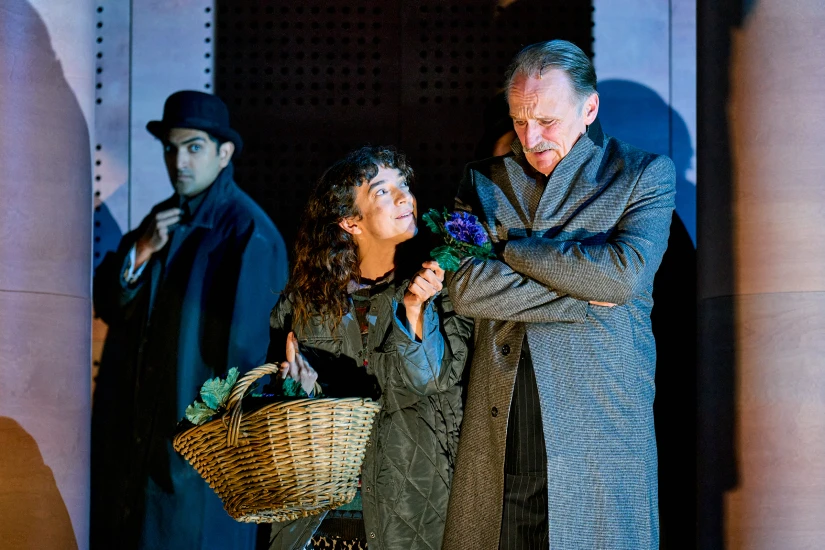
Pygmalion is a classic. So what can I write? I went to the theatre knowing what I would see. And it was all well executed – the later version with the scene at the ball written in. Some scenes felt a bit overplayed, almost farcical; others maybe a little underplayed – leaving me asking – what is it that you, the director, really want me to come away with? I am not sure.
So what did I come away with? There was a part of me that felt the relevance of the play was a little lost. I went to see Medea, and felt it cut me to the bone. I watch Shakespeare and continuously marvel at to how poignant it continues to feel. I watched Pygmalion feeling somewhat lost as to its continuing applicability. Is it really deserving of the Noble prize? Whilst everything on stage was fine, it did not inspire me to think that much – maybe something was lacking in the way it had been put to stage…. maybe it is all a bit outdated and we have moved on?
But later, as I sat at home pondering what I was going to write about this play, the relevance to me did start pouring through. What is in fact important – is it what you say, or how you say it? I am an immigrant in this country, English is not my first language. I am fluent with its words but not with the undercurrent. I think back over the years I have spent here and it all starts flooding back:
- I know what you meant to say, but think about the impact the words you chose has had on others
- Smile more, you look so serious – if you smile more people will be more inclined to listen
- Don’s use ‘no’ so much – even if you mean no, start with saying ‘yes I understand’
I have lived here for two decades now, but I still cannot seem to navigate the expectation that instead of getting my point across simply and concisely, I need to cage it in words that obscure the meaning of my thoughts to make it more palatable to those with whom I am conversing. I need to dress my thoughts in the appropriate accent, in the acceptable phrasing… And I find myself for ever redrafting my emails and comments – removing the simple word ‘no’ and changing it to ‘ you may want to consider an alternative perspective worth exploring.’ Maybe that is the correct thing to write, or maybe, increasingly, in this multicultural society, there are people who would prefer a simpler statement.
“For those whose yes means yes — and no means no —
Without shades of grey…
I am homesick, Lord!” as the great Polish poet, Norwid, wrote in his Song.
And the more I think about it, the more it applies to me because I am a woman. Because as a woman I should be nice, and polite and pleasant. I should not assert myself through language. I have never heard any of my bosses tell my male colleagues to smile more… to temper their words… to be, well, nicer. If I had a penny for every time a male boss told me to smile more…
Like Galatea, Eliza realises the power her own independence can bring – the strength of her own awakening. I sit here thinking about how I have been punished for trying to be just that – my own, independent self, unapologetic for not speaking with the right accent or for not using the approved words and terms. And it has not served me well. Eliza keeps asking about what happens to her now that she has been awoken. I ask myself – should I just fall asleep?